Microdiscectomy Cost in United Kingdom from top hospitals starts from GBP 16195 (USD 20500)approx
.| Country | Cost | Local_currency |
|---|---|---|
| Czechia | USD 12000 | Czechia 272280 |
| Greece | USD 10000 | Greece 9200 |
| Hungary | USD 7000 | Hungary 2439920 |
| India | USD 4000 | India 332600 |
| Israel | USD 18000 | Israel 68400 |
| Lithuania | USD 7000 | Lithuania 6440 |
| Malaysia | USD 9500 | Malaysia 44745 |
| Poland | USD 7300 | Poland 29492 |
| South Korea | USD 13000 | South Korea 17454970 |
| Spain | USD 11000 | Spain 10120 |
| Thailand | USD 9000 | Thailand 320850 |
| Turkey | USD 6000 | Turkey 180840 |
| United Arab Emirates | USD 8080 | United Arab Emirates 29654 |
| United Kingdom | USD 20500 | United Kingdom 16195 |
Treatment cost

Apart from in-detail treatment procedures available, Parkside Private Hospital located in London, United Kingdom has a wide variety of facilities available for International Patients. Some of the facilities which are provided by them are Accommodation, Airport Transfer, Choice of Meals, Interpreter, SIM, TV inside room. Also listed below are some of the most prominent infrastructural details:
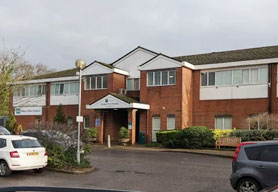
Bishops Wood Hospital is a 42 bedded acute care unit located in Middlesex, UK. Offering treatment and diagnostic services for more than 25 specialties, the hospital was established to offer the highest standard of care and services to patients from across the world. The hospital is a part of the private Circle Healthcare Group, which is a leading provider of state-of-the-art healthcare services and has multiple hospitals and clinics across the world.
The hospital has over 120 specialists and surgeons working with them to provide a variety of surgical and non-surgical treatments to people. The hospital is particularly known for a variety of orthopedic procedures that are carried out, including knee and hip surgery, hand and wrist surgery, foot and ankle surgery, and shoulder and elbow surgery. The hospital has been instrumental in slowly expanding its medical service and now offers treatments to patients requiring primary, secondary as well as tertiary care.
The hospital boasts of its team of medical and nursing staff, which is available 24 hours a day. Every medical specialist is a part of a multidisciplinary team, which includes specialists from the in-house radiology and physiotherapy department.
Facilities Provided:
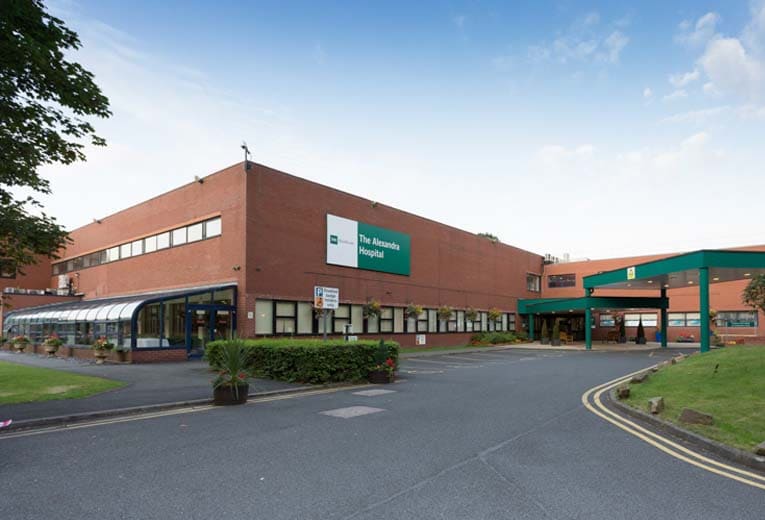
The Alexandra Hospital has access to modern equipment and private facilities for patients in Manchester, Stockport, and Cheshire. The hospital offers Outpatient Services to children from 0-18 years and day-case inpatient procedures for 3-18 years.
Established in 1981, the hospital is a 128-bedded facility offering treatments in more than 20+ specialties. The hospital has a friendly and caring staff. Equipped with world-class technology, the hospital is known for safe and effective outcomes across a wide range of treatments-from complex cases to minor surgery.
The Alexandra Hospital has dedicated radio imaging and biochemistry departments offering a wide range of tests being performed like X-ray, Ultrasound, CT Scan, MRI, DEXA Scan, etc.
The hospital ensures patient safety and provides an ideal environment with trained and experienced staff and a resident team available for 24 hours.
The hospital has efficient patient care that works hard to make each patient's time as pleasant as possible.

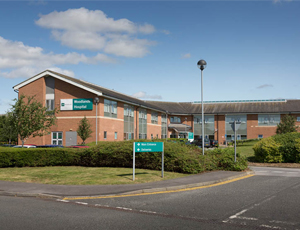
A 38-bedded hospital, Woodlands Hospital is supported by about 150 experienced doctors. It provides the highest standards of modern medical care and is BUPA accredited for its breast care services. All the staff at the hospital are totally committed to ensuring that patients are confident and comfortable with all aspects of their visit. It has resident medical officers available 24/7. Woodlands Hospital has an MRI scanner, an endoscopy unit, and a fully equipped gymnasium in addition to the two laminar flow theaters. It treats NHS-funded patients besides self-funding and insured patients. The hospital has access to the latest equipment and offers private facilities to patients in Richmond, Darlington, and Barnard Castle.
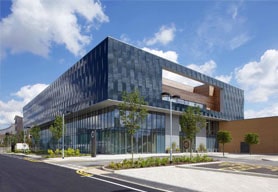
Circle Reading Hospital is a multispecialty hospital located in Reading, Berkshire. The infrastructure of the hospital is such that the patient is exposed to the luxurious and friendly environment and not something that seems daunting to them. The hospital offers a wide range of diagnostic and treatment services circle Reading Hospital is a multispecialty hospital located in Reading, Berkshire. The infrastructure of the hospital is such that the patient is exposed to the luxurious and friendly environment and not something that seems daunting to them. The hospital offers a wide range of diagnostic and treatment services to its patients, allowing them to choose the services that they wish to avail themselves in a hassle-free manner.
Keeping the quality in mind that the patient demands, the hospital has associated itself with some of the best consultants from Berkshire. The presence of some of the most experienced specialists from varied backgrounds, allows the hospital to have an environment that ensures the best possible clinical care for the patients.
The hospital offers treatment across 15+ specialties and some of the most popular treatments are offered for hip, knee, back, foot & ankle, gastroenterology, gynecology, shoulder & elbow, and gastroenterology.
Circle Reading Hospital offers a very warm and comfortable environment to the patients, from the moment they enter the building, whether for consultation or inpatient stay.
Facilities Provided:
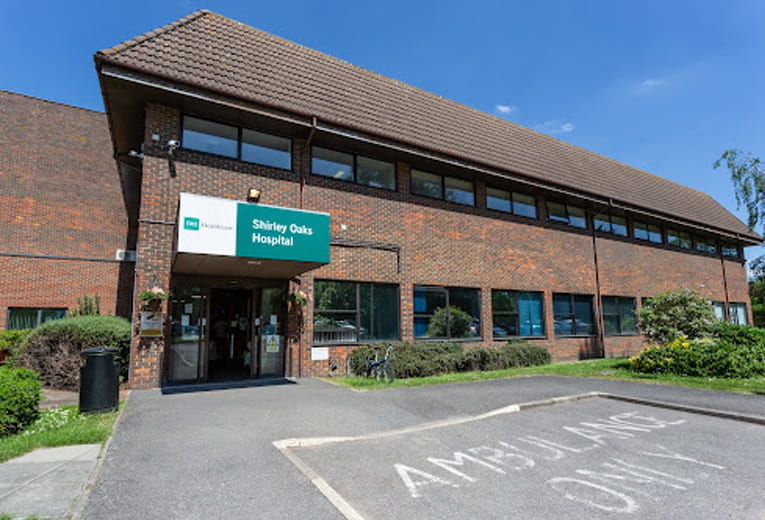
Shirley Oaks Hospital is a multispeciality hospital established in 1986 and is part of Circle Health Group. The hospital is located on the outskirts of Croydon in Shirley Oaks Village. The hospital offers a wide range of diagnostic and treatment services to patients allowing them to choose the services that they wish to avail in a hassle-free manner.
The hospital is a multispecialty facility that offers all types of treatments from 15+ specialties, including general medicine, ophthalmology, gastroenterology, and dermatology. Shirley Oaks Hospital is associated with 80+ consultants from within the UK.
The hospital offers services and treatments to patients under the age of 18 years and above.
Shirley Oaks Hospital offers a very warm and comfortable environment to the patients, from the moment they enter the building, whether for consultation or inpatient stay.
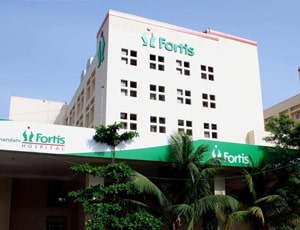
Types of Microdiscectomy in Fortis Hiranandani Hospital and its associated cost
| Treatment Option | Approximate Cost Range (USD) | Approximate Cost Range (INR) |
|---|---|---|
| Microdiscectomy (Overall) | 5577 - 7081 | 456840 - 580776 |
| Open Microdiscectomy | 5602 - 5585 | 455982 - 459971 |
| Endoscopic Microdiscectomy | 6065 - 7111 | 501585 - 583307 |
DOCTORS IN 13 SPECIALITIES
FACILITIES & AMENITIES
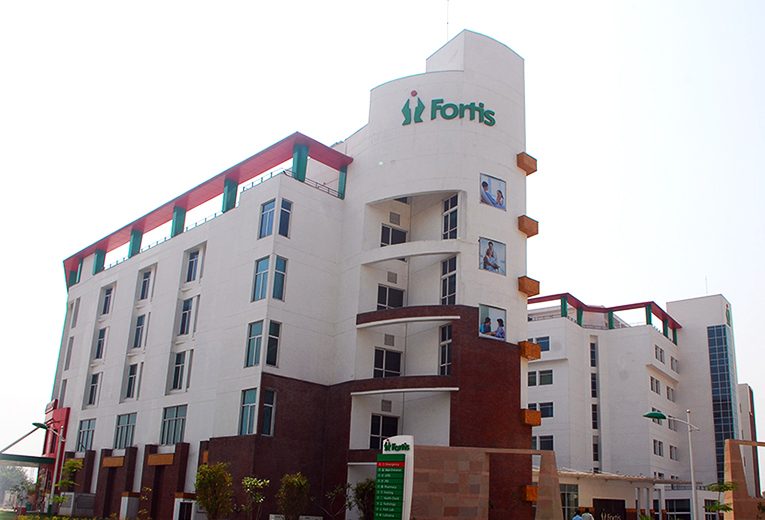
Types of Microdiscectomy & Its Cost at Fortis Hospital, Shalimar Bagh
| Treatment Option | Approximate Cost Range (USD) | Approximate Cost Range (INR) |
|---|---|---|
| Overall Microdiscectomy Cost | 3,000 - 7,000 | 246000 - 574000 |
| Microdiscectomy (Single-level) | 3,000 - 6,000 | 246000 - 492000 |
| Microdiscectomy (Multi-level) | 4,000 - 7,000 | 328000 - 574000 |
Factors affecting Microdiscectomy cost in Fortis Hospital, Shalimar Bagh
| Cost Factors | Cost Range (USD) | Cost Range (INR) |
|---|---|---|
| Hospital Charges (Per Day) | 100 - 200 | 8200 - 16400 |
| Surgeon's Fees | 1,000 - 2,000 | 82000 - 164000 |
| Anesthesia Charges | 300 - 600 | 24600 - 49200 |
| Medications | 100 - 400 | 8200 - 32800 |
| Diagnostic Tests | 150 - 300 | 12300 - 24600 |
| Doctor Consultation | 50 - 100 per visit | 4100 - 8200 (per visit) |
| Physiotherapy | 100 - 200 | 8200 - 16400 |
| Medical Imaging (X-rays, MRI) | 300 - 600 | 24600 - 49200 |
DOCTORS IN 14 SPECIALITIES
FACILITIES & AMENITIES
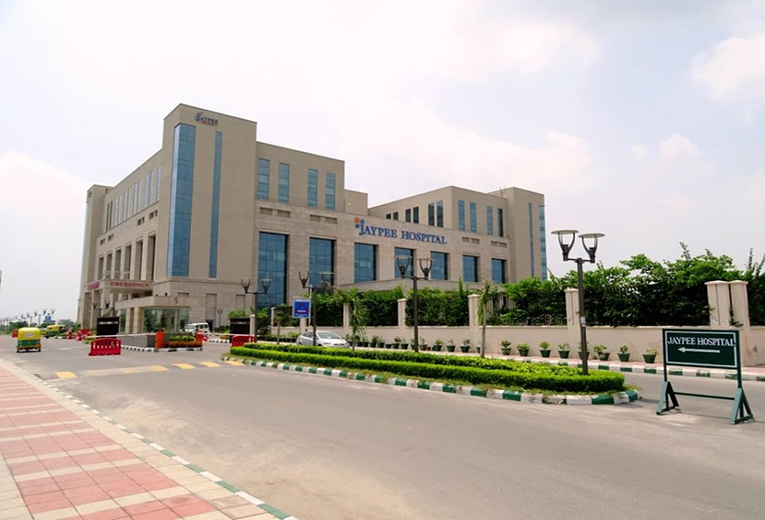
Types of Microdiscectomy & Its Cost at Jaypee Hospital
| Treatment Option | Approximate Cost Range (USD) | Approximate Cost Range (INR) |
|---|---|---|
| Overall Microdiscectomy Cost | 2,000 - 7,000 | 164000 - 574000 |
| Microdiscectomy (Single-level) | 2,000 - 5,500 | 164000 - 451000 |
| Microdiscectomy (Multi-level) | 3,000 - 7,000 | 246000 - 574000 |
Factors affecting Microdiscectomy cost in Jaypee Hospital
| Cost Factors | Cost Range (USD) | Cost Range (INR) |
|---|---|---|
| Hospital Charges (Per Day) | 100 - 200 | 8200 - 16400 |
| Surgeon's Fees | 1,000 - 2,000 | 82000 - 164000 |
| Anesthesia Charges | 300 - 600 | 24600 - 49200 |
| Medications | 200 - 500 | 16400 - 41000 |
| Diagnostic Tests | 150 - 300 | 12300 - 24600 |
| Doctor Consultation | 50 - 100 per visit | 4100 - 8200 (per visit) |
| Physiotherapy | 50 - 200 per session | 4100 - 16400 (per session) |
| Medical Imaging (X-rays, MRI) | 300 - 600 | 24600 - 49200 |
DOCTORS IN 14 SPECIALITIES
FACILITIES & AMENITIES
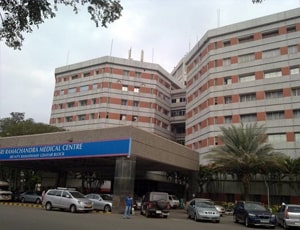
Types of Microdiscectomy in Sri Ramachandra Medical Centre and its associated cost
| Treatment Option | Approximate Cost Range (USD) | Approximate Cost Range (INR) |
|---|---|---|
| Microdiscectomy (Overall) | 5586 - 7095 | 459542 - 584489 |
| Open Microdiscectomy | 5592 - 5602 | 455622 - 457373 |
| Endoscopic Microdiscectomy | 6092 - 7118 | 497216 - 580664 |
DOCTORS IN 10 SPECIALITIES
FACILITIES & AMENITIES
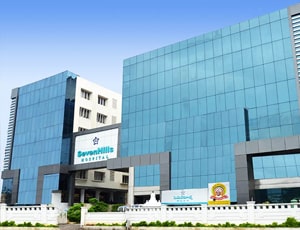
Types of Microdiscectomy in Seven Hills Hospital and its associated cost
| Treatment Option | Approximate Cost Range (USD) | Approximate Cost Range (INR) |
|---|---|---|
| Microdiscectomy (Overall) | 6148 - 7926 | 511501 - 648995 |
| Open Microdiscectomy | 6062 - 6286 | 506570 - 499675 |
| Endoscopic Microdiscectomy | 6685 - 7930 | 553609 - 656979 |
DOCTORS IN 11 SPECIALITIES
FACILITIES & AMENITIES
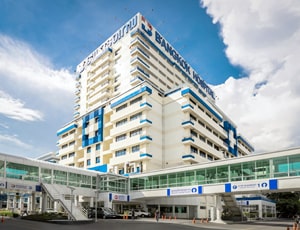
Types of Microdiscectomy in Bangkok Hospital and its associated cost
| Treatment Option | Approximate Cost Range (USD) | Approximate Cost Range (THB) |
|---|---|---|
| Microdiscectomy (Overall) | 3467 - 9663 | 120501 - 339794 |
| Open Microdiscectomy | 3419 - 6815 | 119615 - 239981 |
| Endoscopic Microdiscectomy | 4041 - 9449 | 140461 - 343062 |
Types of Microdiscectomy & Its Cost at Aakash Healthcare Super Speciality Hospital
| Treatment Option | Approximate Cost Range (USD) | Approximate Cost Range (INR) |
|---|---|---|
| Overall Microdiscectomy Cost | 5,000 - 7,500 | 410000 - 615000 |
| Microdiscectomy (Single-level) | 4,000 - 5,000 | 328000 - 410000 |
| Microdiscectomy (Multi-level) | 6,000 - 7,500 | 492000 - 615000 |
Factors affecting Microdiscectomy cost in Aakash Healthcare Super Speciality Hospital
| Cost Factors | Cost Range (USD) | Cost Range (INR) |
|---|---|---|
| Hospital Charges (Per Day) | 100 - 200 | 8200 - 16400 |
| Surgeon's Fees | 1,000 - 2,400 | 82000 - 196800 |
| Anesthesia Charges | 300 - 600 | 24600 - 49200 |
| Medications | 50 - 300 | 4100 - 24600 |
| Diagnostic Tests | 150 - 500 | 12300 - 41000 |
| Doctor Consultation | 50 - 250 per visit | 4100 - 20500 (per visit) |
| Physiotherapy | 30 - 200 per session | 2460 - 16400 (per session) |
| Medical Imaging (X-rays, MRI) | 300 - 600 | 24600 - 49200 |
DOCTORS IN 13 SPECIALITIES
FACILITIES & AMENITIES
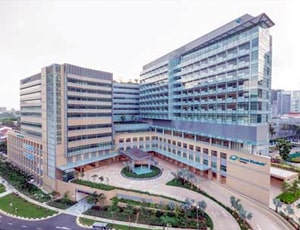
Mount Elizabeth Novena Hospital located in Novena, Singapore is accredited by JCI. Also listed below are some of the most prominent infrastructural details:
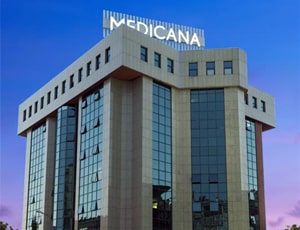
Types of Microdiscectomy in Medicana Camlica Hospital and its associated cost
| Treatment Option | Approximate Cost Range (USD) | Approximate Cost Range (TRY) |
|---|---|---|
| Microdiscectomy (Overall) | 5595 - 7922 | 168885 - 236203 |
| Open Microdiscectomy | 4448 - 6631 | 136932 - 199996 |
| Endoscopic Microdiscectomy | 5526 - 8000 | 171908 - 247930 |
Microdiscectomy is also known as microdecompression or cervical microdiscectomy. It is one of the most commonly performed spine surgery procedures.
Microdiscectomy or cervical microdiscectomy is preferred for patients with a lumbar herniated disc. The main goal of a discectomy is to relieve the pressure on a spinal nerve root by removing the material causing the pain. Traditionally, this purpose was solved by an open technique called lumbar discectomy surgery, which involves making a large incision to cut some of the back muscles, leading to a slow and painful recovery. Nowadays, an advanced form of surgery called microdiscectomy can achieve the same goal that too with the help of a small incision and fewer injury to back muscles. As a result, the recovery takes less time and is less painful. A special microscope is used in microdiscectomy to view the disc and nerves. The larger view allows the surgeon to make a smaller incision, causing less damage to the surrounding tissues.
Sciatica is a condition caused by compression of the spinal nerve, which generally results in chronic pain in the legs of the patients. This compression of the spinal nerve is frequently the result of a herniated lumbar disc. As a herniagrows, the damaged tissue extends into the spinal column and pushes on the nerves. This condition causes the nerves to send pain signals to the brain and the brain interprets the pain source to be coming from the legs.
Most commonly, sciatica heals naturally or with the help of medication in a few weeks. But, if sciatica lasts more than 12 weeks after taking oral medicines, patients may benefit from discectomy. Discectomy is also used for the treatment of spondylosis and lumbar spinal stenosis. While spondylosis occurs due to degenerative osteoarthritis of the vertebrae, lumbar spinal stenosis occurs due to narrowing of the spinal canal leading to nerve compression. The latter may also warrant the need for a spinal stenosis surgery.
Lumbar discectomy surgery is typically performed for rehabilitation of a herniated disc. The same thing is done during microdiscectomy, but with the help of a special microscope. During this procedure, a small part of the bone over the nerve root and disc material under the nerve root is taken out, which finally result in relieving pressure on the spinal nerve column. The microdiscectomy treatment starts by giving general anesthesia to the patient. The patient will be unconscious during the entire surgery and is not able to feel anything. Preoperative intravenous antibiotics are given before the surgery.
The procedure is performed with the patient lying face down, generally using a special operating table with special paddings. The surgical region is cleansed with a cleaning solution. A one-to two-centimeter incision is made directly over the area of the herniated disc. Special retractors and a lighted operating microscope are used to allow the surgeon to see the region of the spine. It helps in minimizing or avoid cutting of the adjacent muscles and tissues.
Before removing a herniated disc, a small piece of bone called lamina is removed from the affected vertebra. This is called a laminotomy, a procedure which allows the surgeon to fully visualize the herniated disc. Small scissor-like tools and grasping instruments are used to remove the protruding disc material. Lastly, the incision area is washed out with sterile water containing antibiotics and the deep fascial layer and subcutaneous layers are closed with a few sutures. The skin is fixed up using special surgical glue and does not require bandages.
The microdiscectomy recovery time is much less than any other invasive procedure. Typically, the patient can expect to leave the hospital within 24 hours of the surgery. Patients may be advised to meet a physical therapist before leaving the hospital. The therapist will instruct the patient on how to reduce twisting and bending of the back. The therapist may advise some exercises to improve the strength and flexibility of the muscles around the spine.
Patients are advised not to drive, sit for a prolonged period, lift anything heavy and bend over immediately after the surgery. The patient is able to resume normal activities after two weeks, but they are advised to avoid lifting heavy objects for at least four weeks after the surgery. Full recovery after microdiscectomy procedure takes at least four to six weeks.
Microdiscectomy is a faster pain relief option than nonsurgical treatment in case of a lumbar herniated disc, but it is not significantly clear that whether surgery makes a difference in what treatment may be needed later on.
Some post-microdiscectomy researchers determined that people who have had microdiscectomy have reported similar improvements as other treatments after one year of surgery. Although it is a less invasive procedure in comparison to other treatment such as spinal fusion, microdiscectomy also involves certain risks just like any other surgery.
Some of the common microdiscectomy risks are:
Ask your healthcare adviser for the best multiple options and choose the one that meets your expectations
Different hospitals have different pricing policy when it comes to the cost of Microdiscectomy in the United Kingdom. The cost quoted by some of the best hospitals for Microdiscectomy in the United Kingdom generally covers the pre-surgery investigations of the patient. Typically, the package cost of Microdiscectomy in the United Kingdom includes the expenses related to the surgeon's fee, anesthesia, hospital, meals, nursing and ICU stay. Extended hospital stay, complications after the surgery or new diagnosis may affect the overall cost of Microdiscectomy in the United Kingdom.
There are several best hospitals for Microdiscectomy in the United Kingdom. Some of the most renowned hospitals for Microdiscectomy in the United Kingdom include the following:
After discharge from the hospital, the patient has to stay for another 14 days in the country for complete recovery. This period is important to conduct all the follow-up tests to ensure that the surgery was successful and the patient can go back to the home country.
There are certain additional cost that the patient has to pay apart from the Microdiscectomy cost. These charges starts from USD 50 per person.
Some of the best cities in the United Kingdom which offer Microdiscectomy are:
The patient has to spend about 1 days in the hospital after Microdiscectomy for proper recovery and to get clearance for discharge. During the recovery, the patient is carefully monitored and control tests are performed to see that everything is okay. If required, physiotherapy sessions are also planned during recovery in hospital.
There are more than 1 hospitals that offer Microdiscectomy in the United Kingdom. The above listed hospitals are approved to perform the surgery and have proper infrastructure to handle Microdiscectomy patients. Also, these hospitals follow the necessary guidelines as required by the medical associations for the treatment of Microdiscectomy patients.
Some of the top doctors for Microdiscectomy in the United Kingdom are: